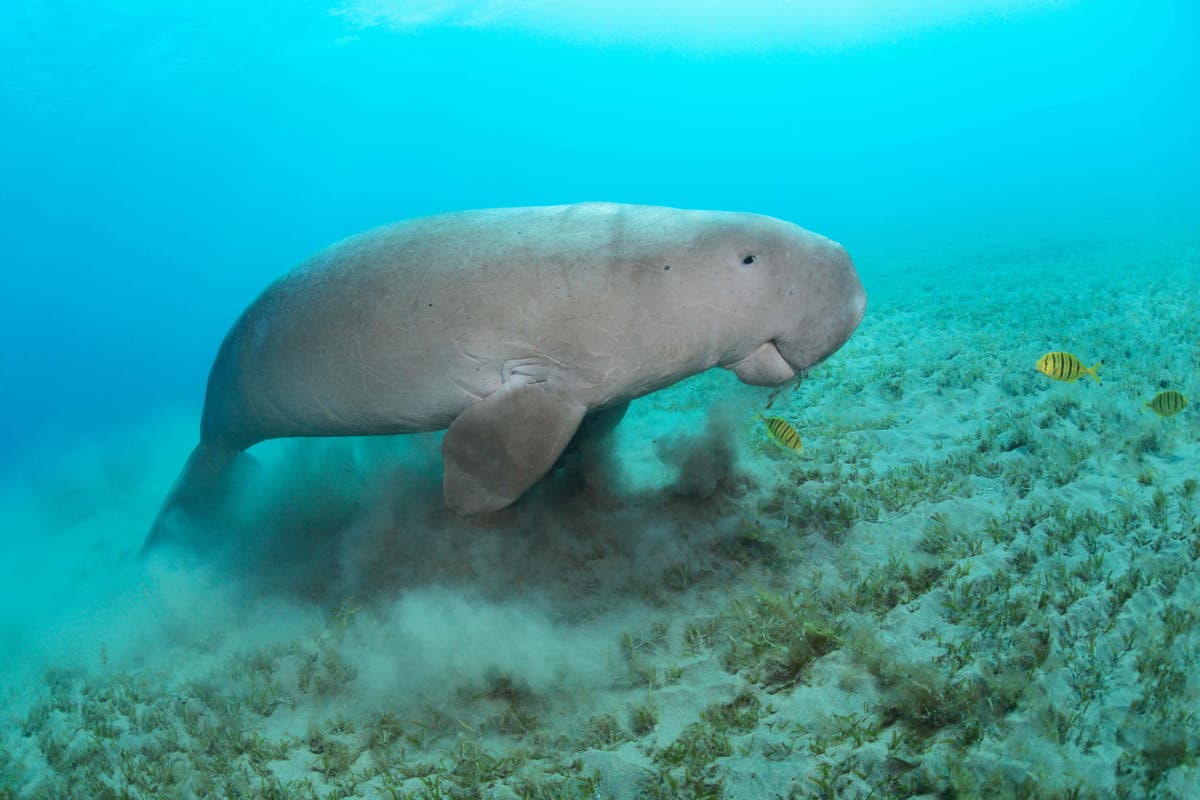Marine life, from dugongs to corals, is facing a “perfect storm” that will wreak havoc on human activity, conservationists warn in the latest list of endangered species.
The latest edition of the International Union for Conservation of Nature’s (IUCN) Red List of Threatened Species warns that a barrage of threats is destroying marine species.
Those include illegal and unsustainable fishing, pollution, climate change and disease, conservationists say.
Overall, 28% of the more than 150,000 Red List-assessed terrestrial, freshwater and marine plant, animal and fungal species worldwide are considered threatened, endangered or threatened with extinction. It is done.
Today’s IUCN Red List update reveals that a complete storm of unsustainable human activity is depleting marine life worldwide
Dr. Bruno Oberle, IUCN Executive Director
Warning issued during ‘Cop15’ UN conference on biodiversity montrealCountries are laying out targets to support natural restoration by 2030, and hope to reach agreement by the end of 2010 to halt and reverse declines and protect habitats.
Dr Bruno Oberle, IUCN Executive Director, said:
“The world looks to the ongoing United Nations Biodiversity Conference to set the course for natural recovery, but it cannot afford to fail.
“We need to bring about major changes to our economic system and urgently address the associated climate and biodiversity crises, or we risk losing the key benefits that our oceans provide.”
Red List update shows dugong population east africa It is now listed as an endangered species and is one step away from extinction.
Only 250 people live in the waters of East Africa, and the loss of seagrass food sources due to unintentional fishing gear catches, boat injuries, oil and gas exploration, trawling, chemical pollution and unauthorized coastal development. Threatened by destruction.
In New Caledonia in the Pacific, less than 900 dugong populations are currently considered endangered. Seagrass is lost to agricultural runoff, pollution from nickel mining and coastal development, and damage from boat anchors.
Species of herbivorous marine mammals are globally threatened with extinction as climate change affects entire habitats.
Abalone reflects humanity’s catastrophic guardian role for our oceans in the microcosm: overfishing, pollution, disease, habitat loss, algal blooms, global warming and acidification.
Howard Peters, Ph.D., University of York
The first global assessment of abalone as part of the Red List shows that 20 of the world’s 54 crustacean species are threatened with extinction.
It is sold as some of the most expensive seafood in the world, and climate change, disease and pollution are exacerbating unsustainable harvesting and poaching, conservationists say.
of South AfricaPoaching by criminal networks, much of it linked to the international drug trade, is decimating endangered abalone populations, the IUCN said.
Increasingly frequent and severe marine heatwaves have caused mass mortality, killing 99% of the northernmost abalone. Western Australia in 2011.
Marine heatwaves are also exacerbating abalone disease around the world. english channel to Northwest Africa and the Mediterranean.
Dr Howard Peters of the University of York, member of the IUCN Mollusk Specialist Group, said: But some threats.
“They’re really the canaries in the coal mine,” he urged people to eat only farmed or sustainably sourced abalone.
While changes in ocean chemistry and temperature are necessary for the long-term preservation of marine life, including abalone, it is also important to implement catch quotas and anti-poaching measures, he said. .
Columnar corals, found in the Caribbean from the Yucatan Peninsula to Florida to Trinidad and Tobago, have transitioned from endangered to endangered status.
Coral populations have declined by more than 80% since 1990 across much of their range. The most immediate threat is the newly emerging highly contagious stony coral tissue loss disease that can infect 100 meters of coral reefs per day.
Bleaching caused by warmer seas, fertilizers, sewage and antibiotics is weakening corals and increasing the risk of disease, while overfishing is unbalancing reefs and putting additional pressure on corals. said IUCN.
Professor Amanda Vincent, Chair of the IUCN Marine Conservation Commission, said:
“It is imperative to manage fisheries well, limit climate change and reverse habitat degradation,” she appealed.
https://www.independent.co.uk/climate-change/news/red-list-montreal-east-africa-english-channel-south-africa-b2242285.html Conservationists warn of perfect storm of human activity to threaten marine life
